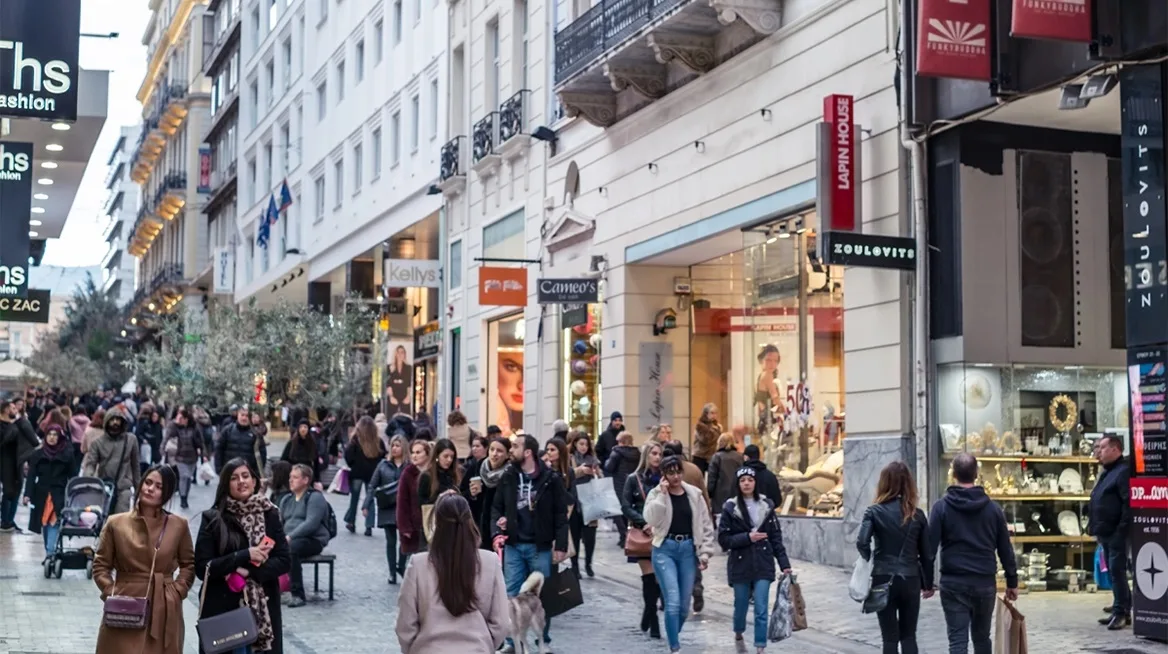Summer sales in Greece will begin on July 8 and run until August 31, 2024. Stores will be open on the second Sunday of July, which is July 14.
The weather’s heating up, and so are the deals! Greece’s summer sales are just around the corner, offering a fantastic opportunity to snag great bargains on everything from clothing and swimwear to electronics and homeware. This year, the sales kick off on July 8th and run all the way through August 31st, giving you plenty of time to shop and save.
Summer sales typically focus on clearing out seasonal products like summer clothing and beach gear. Offers, on the other hand, might involve non-seasonal items or even outdated stock. When it comes to offers, stores must display a sign mentioning the offer and clearly mark both the original and final prices on the products, but not necessarily the discount percentage.
Here are some things consumers should keep in mind:
- Stores are required to display the percentage discount if at least 60% of the items for sale are discounted.
- The discount percentage must be clearly displayed on the store’s storefront and in any other advertising materials.
- If there are different discount percentages for different categories of products, the range of the discount percentage must be displayed (e.g., “from …% to …%”).
- In all other cases, the discounts must be stated as for selected items, with a reference to the corresponding percentage.
- The way in which the reduced price is calculated and displayed must be truthful and not misleading. In the event of a check, shopkeepers must be able to prove that the old selling price displayed on the sign corresponds to reality.
- Consumers should ask for a receipt. In addition to tax compliance reasons, the receipt is necessary for refunding money to consumers in case of purchasing a defective product.
Difference between sales and offers:
- Sales usually concern summer-season products, while offers usually concern non-seasonal items and usually outdated items.
- Shopkeepers are obliged to post a sign stating that offers are being made. The products must clearly state the original price and the final offer price, and in no case the discount percentage.
- Consumers, as defined by Article 1 of law 2251/94, have every right to ask about the origin and quality of the product, and traders are obliged to answer these questions.
Additional Tips:
- Shop around to compare prices before you buy anything.
- Be wary of bait-and-switch tactics, where a store advertises a low price for an item but then tries to sell you a more expensive item instead.
- Read the fine print of any sale or offer before you commit to buying anything.
- If you are unsure about something, ask a salesperson for help.
- Keep your receipts in case you need to return an item or exchange it.
-
But before you dive headfirst into the shopping frenzy, here are some key things to keep in mind as a consumer:
Know Your Discounts:
By law, stores are required to clearly display the discount percentage if at least 60% of their stock is on sale. This information should be prominently displayed on their storefront windows and in any advertisements.
Decoding the Deals:
Sometimes, stores might offer different discounts for various product categories. In such cases, they should show the discount range (e.g., “from 20% to 50% off”). If you see a sign that simply says “Sale” without mentioning specific percentages, it means that only a selection of items are discounted. Be sure to ask the staff for clarification.
Transparency is Key:
The advertised reduced price should be genuine and reflect a real discount. Stores must be able to prove that the original price displayed was indeed the price before the sale in case of any inspections.
Receipts: Your Shopping Safety Net:
Always ask for a receipt when you make a purchase. Not only is it important for tax purposes, but it’s also essential for returning or exchanging a faulty item.
Sales vs. Offers: Understanding the Difference
Bonus Shopping Tips:
- Shop around: Don’t just jump at the first sale you see. Compare prices at different stores to ensure you’re getting the best deal.
- Beware of bait-and-switch tactics: Some stores might advertise a low price to lure you in but then try to sell you a more expensive product instead. Be cautious and stick to your shopping list.
- Read the fine print: Sometimes, sales or offers might have certain conditions attached, so be sure to read the details carefully before making a purchase.
- Ask for help: Don’t hesitate to ask a salesperson for assistance if you’re unsure about anything or have questions about a product.
- Keep those receipts: Don’t throw away your receipts! You might need them to return or exchange an item later.
Designated Sundays for Shopping
According to Greek law, stores are permitted to open on select Sundays throughout the year, as follows:
- First Sunday of Winter Sales: If the first Sunday of winter sales coincides with a public holiday, the shopping Sunday is moved to the following Sunday.
- Second Sunday of Winter Sales: The second Sunday of winter sales remains open for shopping.
- Palm Sunday: Palm Sunday, which falls before Easter, is also designated as a shopping Sunday.
- First Sunday of Summer Sales: Similar to winter sales, if the first Sunday of summer sales falls on a public holiday, the shopping Sunday is shifted to the following Sunday.
- First Sunday after Black Friday: The first Sunday following Black Friday is another designated shopping Sunday.
- Penultimate Sunday before Christmas: To cater to the pre-Christmas shopping rush, the penultimate Sunday before Christmas is open for shopping.
- Last Sunday before Christmas: The final Sunday before Christmas is also designated as a shopping Sunday.
- Last Sunday of the Year: The last Sunday of the year is typically open for shopping, except if it falls on a public holiday.
With a little planning and these helpful tips in mind, you can make the most of Greece’s summer sales and score amazing deals on your favourite items. Happy shopping!

